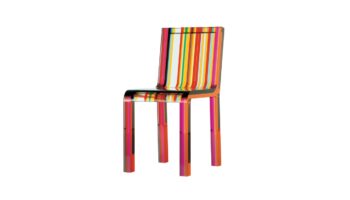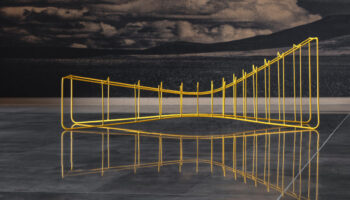At Salone: Blobulous
Remind you of anything? Karim Rashid’s Blobulous chair, featured at the Salone del Mobile in Milan, is reminiscent of many things.
The organic and sensuous shape immediately calls to mind the contentious yet irresistable kidney bean sculpture in Chicago’s Millenium Park, as well as certain white plastic pods shaped like eggs—recently relegated to the basement of a certain college library I once frequented to die a slow death amidst other archaic artifacts, such as the card catalog.
Blobulous chair . Designed by Karim Rashid. Image courtesy of DesignBoom.
But the Blobulous is a rebirth of modern kitsch. With its candi-colored fiberglass shell and felt seat, the Blobulous refashions the 1970s plasticized pod into a postmodern statement—at once satirizing the sleek futurism of Woddy Allen’s Sleeper and yet simultaneously honoring and accentuating the pod’s inherent sensuality.
As noted in our look at another Rashid creation, The Koochy Sofa, the designer seems smitten by fluidity. As its name suggests, the chair evokes all things formless: a short list might include amoebas, droplets of mercury in water, the material manifestation of the other-worldly life forms in The Abyss—each of which presents the specter of strangeness or of an unfamiliar form adapting itself to its environment.
The Blobulous also evokes a classic manifestation of 1940s cold war paranoia and xenophobia—the Blob—which astounded and frightened all denizens with its peculiar locomotion and ability to absorb and consume any life form that should come too close. I’d argue that a similar sort of attraction/repulsion dynamic is at play with Rashid’s new chair: both the strangeness of it and the way it evokes primordial life forms attract as well as repels; one look at its odd asynchrony, at its renunciation of geometric forms, its startling use of hyper-vivid hues, and one is compelled to look as well as touch. This, in concert with the subtle intimation that the thing may swallow you whole, creates a certain allure. We love it for its bizarreness, for the suggestion of other-worldliness entire.




Leave a Reply